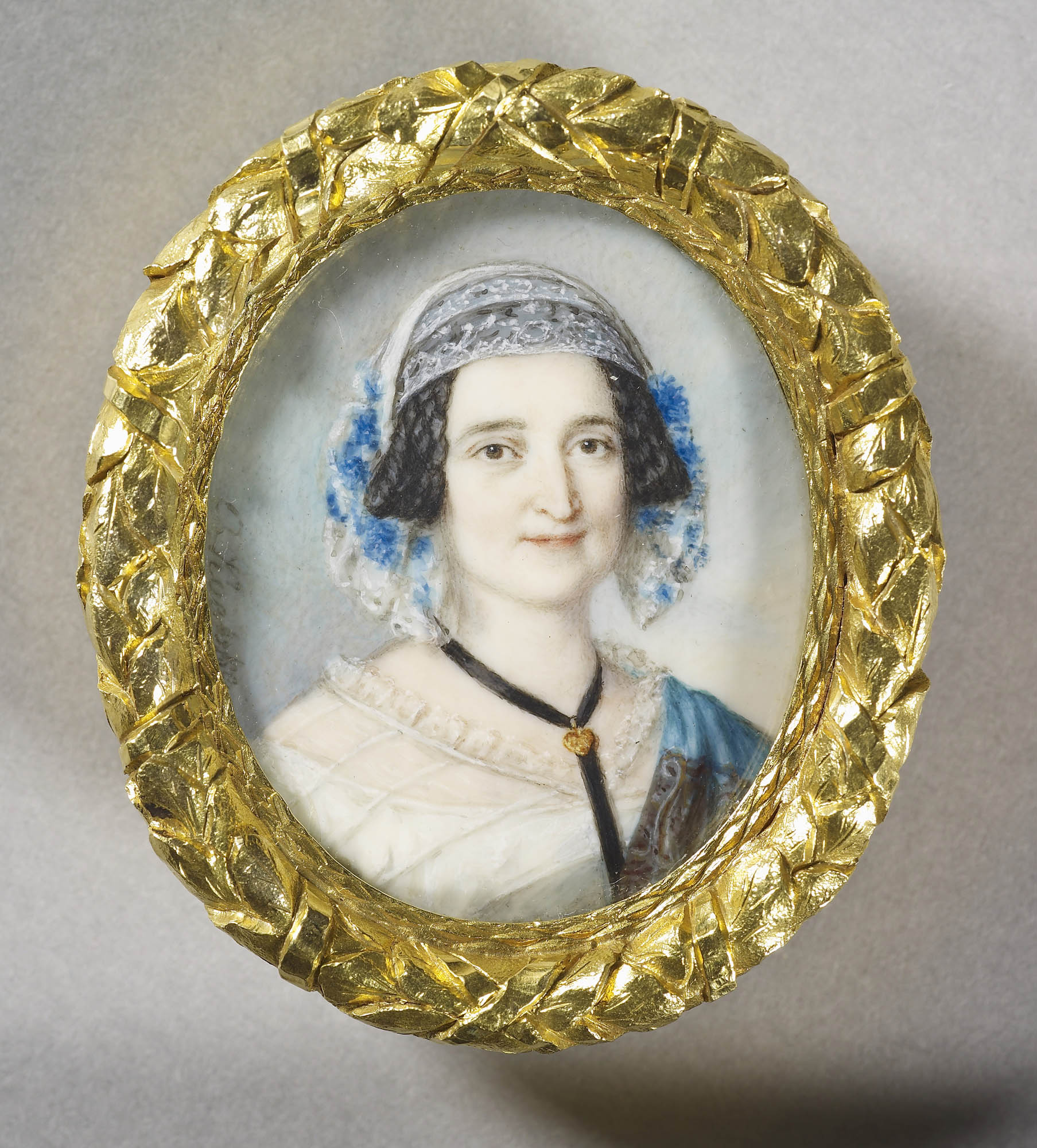Louise Lehzen
| Louise Lehzen | |
|---|---|

Painted by Carl Friedrich Koepke for Queen Victoria, c. 1842
|
|
| Born |
Johanna Clara Louise Lehzen 3 October 1784 Kingdom of Hanover |
| Died | 9 September 1870 (aged 85) Bückeburg, Province of Hanover, Kingdom of Prussia |
| Known for | Governess, adviser and companion to Queen Victoria |
| Title | Baroness |
Johanna Clara Louise Lehzen (3 October 1784 – 9 September 1870), better known as Baroness Louise Lehzen, was the governess, and later adviser and companion, to Queen Victoria of the United Kingdom.
Born to a Lutheran pastor in Hanover, in 1819 Lehzen entered the household of the Duchess of Kent and her husband Prince Edward Augustus, Duke of Kent and Strathearn. Five years later, Lehzen became governess to their only child, Princess Victoria. Lehzen became strongly protective of the princess, who resided in a household dominated by the controlling Kensington System, implemented by the Duchess and her comptroller Sir John Conroy. "Dear, good Lehzen" soon came to supersede all others in Victoria's eyes, including her own mother.
Victoria became second-in-line to the British throne in 1827; to prevent Victoria from being surrounded by commoners, King George IV named Lehzen a Baroness of the Kingdom of Hanover later that year. Lehzen encouraged the princess to become strong, informed, and independent from the Duchess and Conroy's influence, causing friction between the two and Lehzen. Attempts to remove the governess, who had the support of George IV, his brother William IV, and Victoria's uncle Leopold I of Belgium, were unsuccessful.
When Victoria became queen in 1837, Lehzen served as a sort of unofficial private secretary, enjoying apartments adjacent to Victoria's. The queen's marriage to Prince Albert in 1840 led to significant changes in the royal household. Albert and Lehzen detested each other, and after an illness of the Princess Royal in 1841, Lehzen was quietly dismissed. Her close relationship to the queen came to an end, although the two continued to write letters to each other. Lehzen spent her last years in Hanover on a generous pension, dying in 1870. Historian K. D. Reynolds writes that Lehzen was a major influence on Victoria's character, in particular giving her the strength of will to survive her troubled childhood and life as a young queen.
...
Wikipedia
